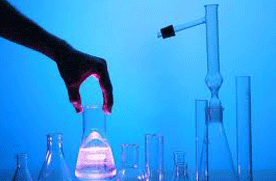

Industrial biotechnology (known mainly in Europe as white biotechnology is the application of biotechnology for manufacturing purpose, counting manufacturing, option energy (or "bioenergy"), and biomaterials. It includes the practice of using cells or components of cells like enzymes to generate industrially useful products. The Economist speculated (as cited in the Economist article listed in the "References" section) industrial biotechnology might considerably impact the chemical industry. The Economist also suggested it can enable economies to become less needy on fossil fuels.
The industrial biotechnology groups of people generally accept an informal divide flanked by industrial and pharmaceutical biotechnology.
Climate change property on the rising country populations and its relation to industrial biotechnology present an opportunity of setting a foundation for a transition to and industrial economy via mitigation options set about in the Kyoto protocol
The association between industrial biotechnology and climate change cuts across three major spheres of climate change science and policy: impacts, mitigation, and adaptation. The impacts of a altering climate on agriculture plus land use will have an effect on the availability of biomass as well as food production. Rising country populations will suffer disproportionately, especially since some of the regions that may be most unenthusiastically exaggerated are located in small island states and in already poor areas of sub-Saharan Africa.
With respect to mitigation, the growth of industrial biotechnology can offer new opportunity for fossil fuel replacement and carbon confiscation. If genetic modification is employed, the linkages to both mitigation and adaptation would be even more direct. A given crop might be adjusted so as to yield better individuality for energy production (e.g. more fiber, faster enlargement, less lignin). With respect to adaptation, varieties might be developed that require less water or are or else more suited to the new climate. Biomass and industrial biotechnology can address GHG emissions while at the same time providing a more sustainable base for the rising world's change from an agrarian to an industrial economy.

Biotechnology also utilizes these products for developed purpose. Contemporary use of alike terms includes hereditary engineering as well as cell- and tissue civilization technologies. The concept encompass a wide variety of procedures (and history) for modify living organisms according to human purposes — leaving back to domestication of animals, cultivation of plants, and "improvements" to these through breeding programs that employ artificial selection and hybridization. By contrast to biotechnology, bioengineering is usually consideration of as a related field with its emphasis more on higher systems approach (not necessarily altering or using biological resources directly) for interfacing with and utilizing living things..
The surroundings around us is undergo a lot of alter due to increased amount of pollutants and climatic changes around the globe. To maintain a sustainable situation, it is necessary to cleanse our habitat. Biotechnology helps us to learn the existing poverty pathways and manage on them. For example, the oil spills in coastal regions and petroleum seepage into water bodies, can be controlled by bioengineered microorganisms, which can mortify these harmful pollutant. Biotechnology in conjunction with environmental sciences provides valuable insights into the dissimilar pathways and networks of important elements in natural world, thereby helping in bioremediation.